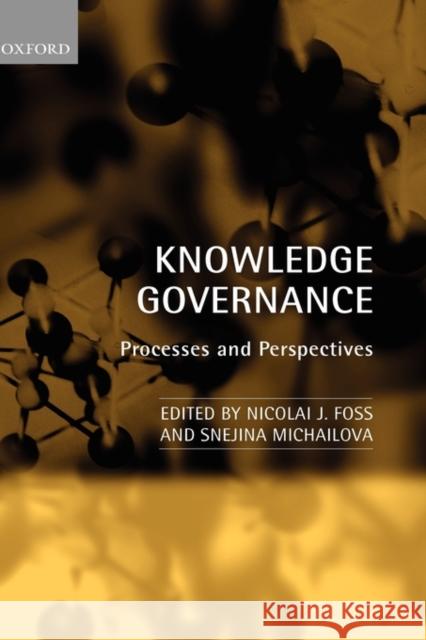Knowledge Governance: Processes and Perspectives » książka
Knowledge Governance: Processes and Perspectives
ISBN-13: 9780199235926 / Angielski / Twarda / 2009 / 304 str.
While there are many books on knowledge management, knowledge governance is a concept that has not been so well explored, and is much less understood. Knowledge governance refers to choosing structures and mechanisms that can influence the processes of sharing and creating knowledge.
The book argues that knowledge governance is a distinct issue in management and organization because knowledge processes differ on several dimensions from routine and more traditional processes. The relationship between governance issues and knowledge processes is under-researched, theoretically as well as empirically. Thematically, knowledge governance cuts across fields such as general management, human resource management, the management of intellectual capital, innovation theory, strategic management, technology strategy, and international business. Not surprisingly, existing ideas are developed from the perspectives of different fields and from different underlying disciplinary foundations; however, it often remains unclear how these ideas relate together and how they differ in terms of unit of analysis, mode of analysis, underlying logic and assumptions, etc.
This book is an important step towards overcoming the existing fragmentation in the field by providing a multi-disciplinary collection of chapters on knowledge governance. While the single chapters accentuate the pluralism in the field, they all examine issues that constitute the essence of knowledge governance.











